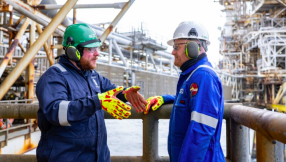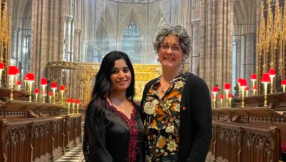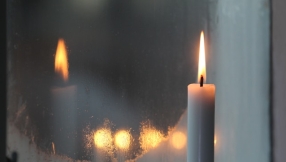
In our cities and countryside we often stumble across beautiful buildings that point to the impact wealthy individuals have had on our culture: people who have lived in luxury while others have worked hard in comparative poverty. The rich making the most of their power – often creating beauty; but often also using an unsustainable volume of resources.
In the last few generations, the gap between rich and poor has grown rapidly. Last week, a report published by Oxfam shows that the richest 1% of people are responsible for more carbon emissions than the poorest 66%, adding to environmental challenges that will most substantially impact the poorest.
The 'mortality cost' formula used by the US Environmental Protection agency argues that the carbon usage of the richest 1% could cause the deaths of 1.3 million people over the next decades.
When I read reports like this I feel angry and powerless in equal measure. How can the greed of so few have such devastating impact on so many? How can I do anything to change it? As I write, an email from Oxfam has just arrived in my inbox, asking for help to get water to the poorest of the poor. There's a huge justice issue here.
But in the midst of the anger I pause and remember that some of the richest people I know are also the most generous, quietly pouring money and skill into providing for those in need, often anonymously; gently shifting policy in big business to make sure that youth programmes and charitable foundations are part of the picture, encouraging carbon responsibility and resourcing innovative projects that provide hopeful futures for those often shut out by the nature of their background.
And in the midst of my sense of powerlessness I remember that as a Christian I believe in a God who can do the impossible, and so I can use my prayers and my position to work for change. To speak out on issues of justice, and to encourage those around me to use their position and influence – however big or small – to shape 'the way things are done around here' for the benefit of all.
I can look at my own carbon use and choose options that are a little less selfish, maybe a little more costly, but challenge the trend of my own selfishness.
Ultimately, I believe the Bible calls each of us to join in God's redemptive work in our particular places and roles. That means the 1% have an outsized responsibility to wield their influence to curb emissions; and it means that through the rest of us, God is also working to redeem his world.
Rev Jo Trickey is Church Advocate at the London Institute for Contemporary Christianity (LICC).













